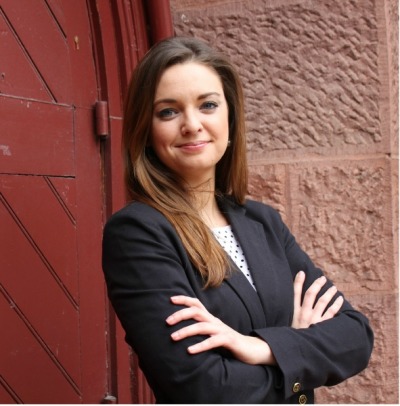Looking Towards 2016: Prosperity, Protection and Protestants

On past episodes of MSNBC's Hardball, host Chris Matthews has likened America's two major political parties to household parents. In that, the Democrat party resembles overprotective mothers coddling and nurturing. While Republicans reflect disciplinary fathers offering protection, security and encouraging independence. This year, polls proved that when it comes to America's "family values," voters are looking for a father figure.
On November 13, 2014 Washington D.C.'s Brookings Institute and the Public Religion Research Institute (PRRI) co-hosted a panel discussion to uncover what exactly motivated religious and non-religious voters during the midterm elections and what we can learn looking ahead to the 2016 presidential election. Panelists included Joy Reid, Host of MSNBC's The Reid Report, Henry Olsen, Senior Fellow of the Ethics & Public Policy Center, and Melissa Deckman, Chair of Washington College's Political Science Department.
Before panelists weighed in on the election, Robert P. Jones, CEO of PRRI, presented his organizations' post-election 2014 American Values Survey of 1399 constituents questioned before and after the midterm polls closed. According to survey results, 61 percent of voters who admitted they are worried that either they or a family member will be the victim of terrorism cast their vote for Republican candidates.
Ebola was another motivator behind those who voted Republican. Over 50 percent admitting they are worried they or a family member will catch Ebola.
It's no surprise now that 62 percent of Americans believe America is on the wrong track, especially when it comes to economic prosperity. But what is surprising is that when asked if they believe the economy is still in a recession today, 72 percent of "Americans answered, "yes." And Jones' breakdown of demographics revealed that 4 out of 6 self-described Democrats, 6 in 10 women and 6 in 10 young adults all harbor disapproval of the direction of the country.
So what can and should Democrat candidates do to target voters' values and come out victorious in 2016? Moving forward, the panelists offered a mixed array of suggestions.
Offering a conservative perspective, Olson stated, "The Republican Party and the conservative party have been perceived as the uncaring party movement since the Great Depression. So the fact that Democrats have a 10 point edge on cares for people comes as no surprise." What does surprise Olsen, is that when it comes to a comparison between voters' view Democrats as more caring, yet believe that Republicans more likely share their values.
"When you look at the differences, you find that certain groups do not move very much," said Olsen. "But groups that do shift between say Republicans share my values and Democrats don't care are Mainline Protestants. Where guess who dominates the upper Midwest. Mainline Protestants, Lutherans and Methodists and Roman Catholics." For victorious hopefuls, candidates must focus on these religious, persuadable voters as key. "Mitt Romney did not, which is the great reason why Barack Obama held on to enough of the white working class upper Midwest to win the presidency."
Holding a liberal ideology, Reid's disagreed with Olson on voter targeting. "Mainline Protestants and Evangelical Protestants have just culturally become Republican. And I'm not sure that Democrats can do much about that in much the same way I'm not so sure Republicans can do much about the cultural identification of African Americans with the Democrat party." Reid continued, "I think you just have a lot more tribalism in our voting behavior as a country, region, ethically, and age wise."
The challenge facing Democrats looking forward, says Reid will be to motivate their base vote of non-white voters and not "run a very off-putting sort of campaign in which Democrats attempted to solve their Southern problem by presenting as not Democrat."
For moderate Melissa Deckman, it's the Democrats who should be worried about the gender gap, not Republicans. "Despite the shellacking that the GOP took among women voters in 2012, the Republican party was really able to mitigate some of its losses among women. Losing the women's vote by just four percent." Deckman continued, "However, the gender gap really cuts both ways. I think the more interesting take-away in this election is the male vote. And I think we need to start asking why do Democrats do so poorly with men?"
While the experts disagree on the election strategies one thing is clear when it comes to winning the 2016 election, prosperity, protection and Protestants are key.




























